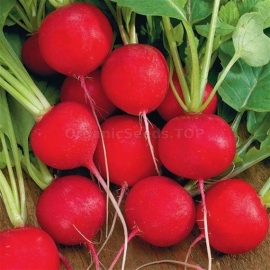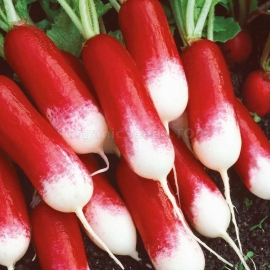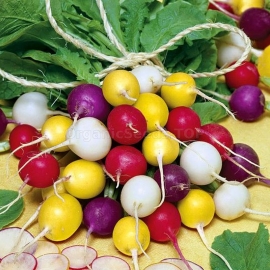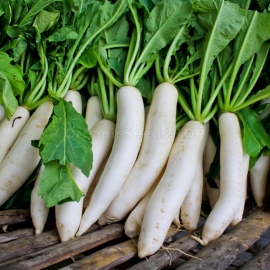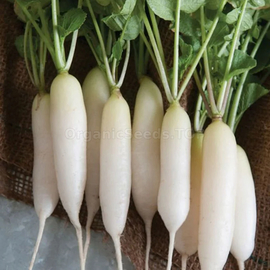
«White Breakfast» - Organic Radish Seeds
1.14 €
Early ripening variety, 23 days, root crops of elongated cylindrical shape with a blunt tip, white color, weighing 20-25g, white flesh, very dense, juicy, tender and pleasant to the taste.
-
Total Comments: 0
With this product buy
Product code: 12141
1.14 €
Early ripening variety. Fruits are red, smooth, round in shape, up to 30 grams. The flesh is white, crunchy, very tender and juicy, slightly spicy in taste. You can grow throughout the season on soils of different fertility.
Product code: 12144
1.14 €
Mid-early yielding variety of radish. Vegetation period from shoots to technical ripeness is 25-28 days. Roots are large, elongated-cylindrical, red color with a white tip, weight 25-30 grams, resistant to cracking. The pulp is tender, juicy, good taste.
Product code: 12737
1.14 €
For early production, it includes seeds of the following varieties: Zlata, Icicle, Snow White, Red with a white tip, 18 days. Varieties of high-yielding, with excellent taste and marketable qualities of root crops, resistant to shooting and sagging.
Product code: 12930
1.14 €
Late-ripening variety, large root crop, 18-20 cm long, weighing up to 200 grams. The pulp is white, juicy, slightly peppery taste, not loose, very widely used to treat diseases of the biliary tract.

